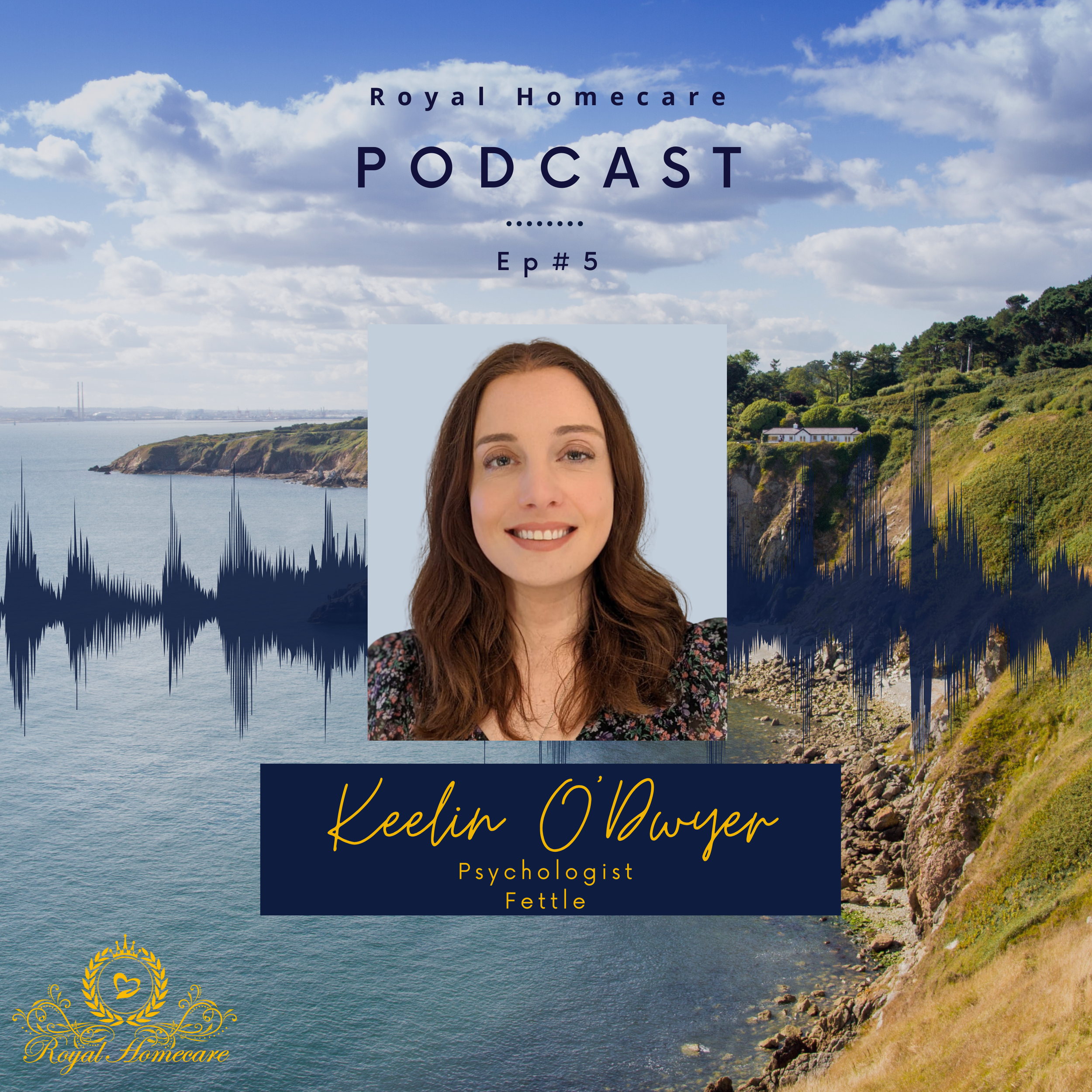Fettle Guest Blog:How therapy helped me as a carer
Working in care was a very enriching yet, at times, emotionally challenging experience. Everyday, I was privileged to care for individuals who had built rich lives but now required assistance with basic daily living activities.
Through laughter, tears, lifelong memories, and the bonds formed with service users and their families, it was only after leaving the profession that I came to understand and appreciate the profound impact of my role as a carer. Along with the joys of caregiving came the inevitable and heartbreaking encounters with grief, loss, diagnosis, and frustration, particularly when advocating for the vulnerable against systemic challenges within the healthcare system.
I have never been a stranger to therapy and have been in and out of therapy at various points in my life. When a lady I provided live-in care for received a terminal diagnosis, I knew I needed support to be the best carer I could be whilst showing up for myself to process this devastating news. So, I was back in the client chair again.
For me, the most challenging part of working in nursing care was witnessing the passing of service users. Each loss leaves a void in your heart; it’s hard to describe. Writing this, I feel a pain in my chest as I think about the loss of all the amazing characters I had the pleasure of caring for throughout the years. Despite a carer’s best efforts to provide comfort to family members and themselves amid loss, the inevitability of death can weigh heavily on the spirit.
I found it challenging to reconcile my emotions surrounding losses. I still struggle with it from time to time. Without therapy, when I felt lost, I would tend to binge eat and stay up at night ruminating on the “what ifs” and feel overly pessimistic about the World in general. Through therapy, I learned to acknowledge and process these uncomfortable emotions, allowing myself the space to mourn and reflect on the impact each individual had on my life and, most importantly for me, focusing on ways to keep their memory alive.
Balancing the work demands with personal life is a major challenge in any caregiving profession. The nature of our work often requires us to extend ourselves beyond our scheduled hours, and we may encounter falls and incidents that can require reports and write-ups, leaving little time for self-care.
With the support of my therapist, I discovered the importance of setting boundaries and prioritising self-care. Whether through mindfulness practices on my sleepover shifts, carving out time for hobbies, or spending quality time with friends, I learned small ways to nurture myself inside and outside work. This helped me “fill up my own cup first”, which ensured I could continue providing compassionate care to those in need.
Burnout is commonplace in healthcare because it’;s a high-demand role. I particularly struggled with the systemic injustices the people I cared for constantly faced. The emotional toll of advocating against these injustices or watching those I cared for so often face discrimination due to their disability and age left me feeling powerless and disillusioned.
Through therapy, I developed coping strategies to navigate the challenges of advocacy and balance my worldview. I also reminded myself of all the good I can do instead of hyper-focusing on the things outside my control.
As carers, we constantly look out for the well-being of our clients, even in the face of obstacles. Whether navigating bureaucratic red tape or challenging institutional norms, advocating for the vulnerable requires care, courage, compassion, and unwavering resolve.
Therapy provided me with a safe space to explore the complexities of working in care, discover ways to prevent burnout, and harness my sadness and frustration in a meaningful way to create positive changes for myself and those I cared for. Given the demands of their role, it’s essential for any carer to have a safe space to unpack their emotions. Therapy is one powerful avenue for nurturing one’s well-being amidst the demands of caring for others.
Keelin O’Dwyer I Fettle - Ireland’s Leading Online Therapy Platform
Website: www.fettle.ie Email: Keelin@fettle.ie
“I am a qualified Psychologist and Life Coach and hold a Bachelor of Arts (Honours) Degree in Psychology and a Masters in Health, Psychology & Behaviour. I am an accredited member of Psychological Society of Ireland (PSI), an associate member of the Coaching division of the PSI, and a professional member of The Association of Contextual Behavior Science (ACBS), The International Association of Therapists (IAOTP) & The International Society for Coaching Psychology (ISCP)”
If you would like to find out more about Keelin, you can listen to her on Royal Homecare’s Podcast by clicking here.
Disclaimer: This website does not provide medical advice
The information, including but not limited to text, graphics, images and other material on this website, is for informational purposes only. No material on this site is intended to be a substitute for professional medical advice, diagnosis or treatment. Always seek the advice of your physician or another qualified healthcare provider with any questions you may have regarding a medical condition or treatment before undertaking a new health care regimen. Never disregard professional medical advice or delay seeking it because of something you have read on this website.





